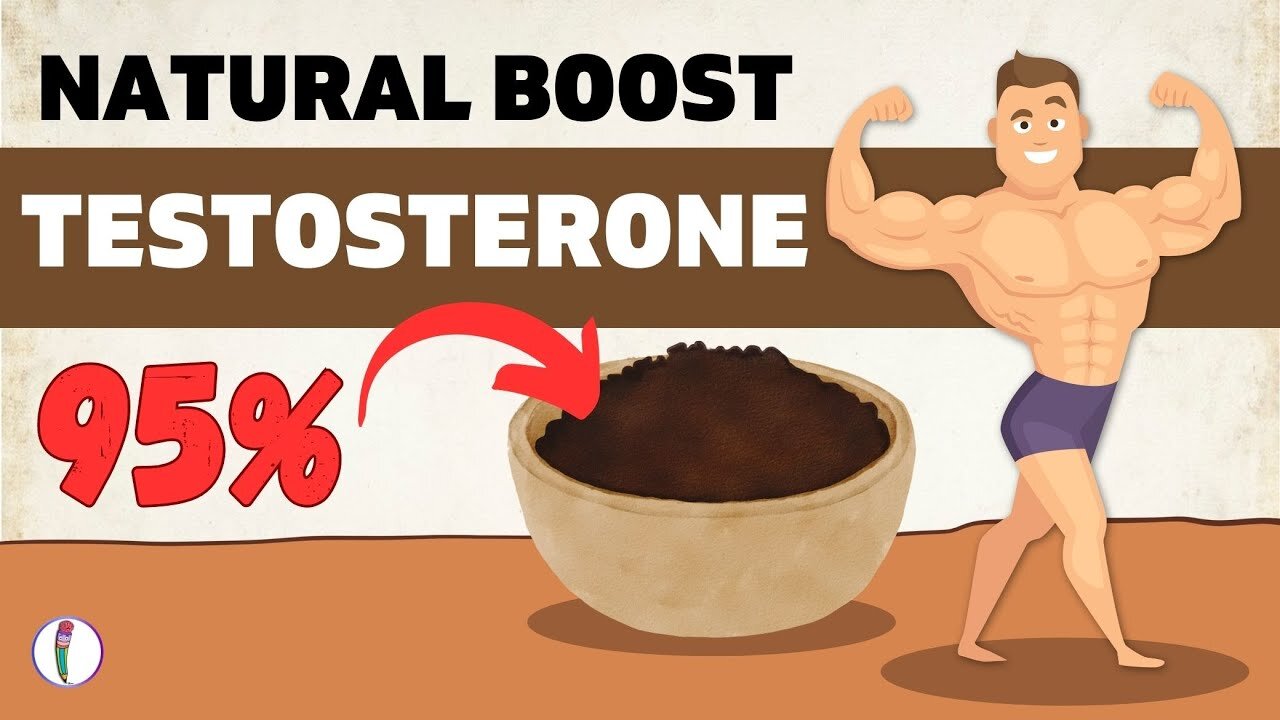Premium Only Content

How to increase testosterone (naturally) / Testrone booster foods/
How to increase Testosterone (Naturally) | Testosterone Booster Foods | Testosterone Booster | how to boost testosterone naturally
Feeling tired, sluggish, and lacking motivation? It may be due to low testosterone levels, a crucial male hormone that affects fertility, sexual function, bone health, and muscle mass. Age, lifestyle choices, and medical conditions can impact hormone levels.
Fortunately, you can increase testosterone levels through dietary and lifestyle changes. In this video, we'll explore the best foods for boosting testosterone.
First, leafy green vegetables like spinach, kale, and collard greens are rich in magnesium, which stimulates testosterone production. They also contain vitamins, antioxidants, and fiber, reducing inflammation and maintaining a healthy weight.
Fatty fish such as salmon and sardines provide vitamin D, zinc, and omega-3 fatty acids, essential for hormonal health. They counterbalance the negative effects of low-fat diets on testosterone levels.
Cocoa products, like cocoa powder and cacao nibs, offer magnesium and flavonoid antioxidants, which enhance testosterone production.
Eggs contain healthy fats, protein, and selenium, which activate testosterone production pathways.
Avocados provide healthy fats, magnesium, and boron, potentially benefiting testosterone levels.
Pomegranate juice increases testosterone levels, thanks to its antioxidants, nitric oxide production, cortisol reduction, and improvement in sperm quality.
Shellfish such as oysters and clams are excellent sources of zinc, selenium, and omega-3 fatty acids, supporting optimal testosterone levels.
Incorporating these foods into your daily meals can optimize hormonal health and overall well-being.
#testosteroneboost
#testosterone
#increasetestosterone
#healthylifestyle
Medical disclaimer: Medinaz Academy does not provide medical advice. The content available in our books and videos, on our website, or on our social media handles do not provide a diagnosis or other recommendation for treatment and are not a substitute for the professional judgment of a healthcare professional in diagnosis and treatment of any person or animal. We intend to provide educational information only. The determination of the need for medical services and the types of healthcare to be provided to a patient are decisions that should be made only by a physician or other licensed health care provider. Always seek the advice of a physician or other qualified healthcare provider with any questions you have regarding a medical condition.
-
 LIVE
LIVE
Wendy Bell Radio
6 hours agoOn Day One
11,561 watching -
 1:59:27
1:59:27
Jeff Ahern
3 hours ago $1.41 earnedFriday Freak out with Jeff Ahern (6am Pacific)
20.2K -
 1:56:07
1:56:07
Game On!
11 hours ago $0.67 earnedJosh Allen is the NFL MVP! It's not even close!
7.33K1 -
 13:05
13:05
Neil McCoy-Ward
2 hours agoWhy The Media Won't Tell You What Milei Did In Argentina...
17.6K1 -
 3:56:44
3:56:44
Alex Zedra
14 hours agoLIVE! Trying to get achievements in Devour
213K26 -
 2:00:43
2:00:43
The Quartering
17 hours agoThe MAGA Wars Have Begun! Vivek & Elon Get Massive Backlash & Much More
210K94 -
 1:25:53
1:25:53
Kim Iversen
3 days agoStriking Back: Taking on the ADL’s Anti-Free Speech Agenda
136K125 -
 49:35
49:35
Donald Trump Jr.
20 hours agoA New Golden Age: Countdown to Inauguration Day | TRIGGERED Ep.202
251K272 -
 1:14:34
1:14:34
Michael Franzese
19 hours agoWhat's Behind Biden's Shocking Death Row Pardons?
96.5K58 -
 9:49
9:49
Tundra Tactical
18 hours ago $29.09 earnedThe Best Tundra Clips from 2024 Part 1.
179K15